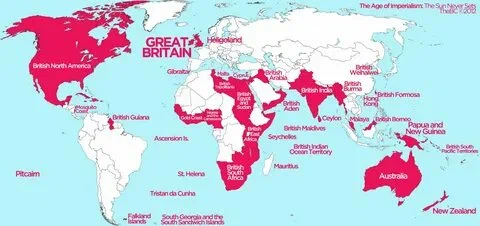Let’s defend our own backyard first
Fifteen years ago at a London foreign policy breakfast in a bunker, a pathology that blights British statecraft reared its head. “We’ve got to have a global role”, insisted a senior member of parliament. All in the room nodded as though this were axiomatically true. “Our interests are our values”, piped up a highly regarded journalist, supporting the case for worldwide power projection and an unbounded sense of what matters. More grunts of agreement around the table. The agenda was set. The fix was in. For the rest of the hour, we discussed how to give Britain universal weight, even amidst a looming austerity budget. No-one asked the prior and most important question, “why?”
The question remains. Indeed it has become more urgent. Being important everywhere if anything is more difficult now. Energy is more expensive now. As are loans. As is military equipment. Vital industries like steel struggle to survive. Physical infrastructure from schools to electricity plants ages and is under strain. The country struggles to manage funding gaps and breakdowns in social care, transport, or policing. Yet the anxiety endures about appearing and feeling irrelevant, every time a foreign policy crisis erupts. Where is Britain in all this? Why isn’t this country central to the action? Where is Global Britain amidst the tumult? Recall the lamentations when President Donald Trump bombed Iran in June 2025, that the UK’s Carrier Strike Group was not directly part of the president’s posse in the Arabian Sea, but rather deploying to Singapore to underscore Britain’s presence.
A good thing too, my friend David Blagden rightly argued. Embroilment in Middle Eastern crises is not always wise. In Iran’s case, Britain “astutely let allies with more at stake bear the costs of weakening a UK adversary while eschewing costly entanglement and lessening the retaliatory dangers.” But we might extend the inquiry further. How vital is it for Britain to be displaying its naval power in South East Asia, when its own European neighbourhood is more unstable, more threatened and in more upheaval than in many years?
Vladimir Putin’s Russia is hardly Hitler’s Germany or Stalin’s Soviet Union, capable of swiftly overrunning the continent. But someone still has to do the counter-balancing. The equilibrium in Europe, still an important power centre, does not happen automatically. And if Ukraine is any guide, checking Russian aggression in future (or whatever aggressor appears) will require not only firepower and manpower but industrial depth, large stockpiles of munitions, fuel, food and equipment, a large and capable technically proficient workforce, willing and capable allies, a credible nuclear deterrent, and an arms industry organised to be resilient rather than financially efficient.
If that weren’t demanding enough, a future defence of Europe might find the United States in the background, or even missing in action. And all of this in a theatre that historically has been central to Britain’s survival and liberty. Therefore, being able to apply some force vastly further away, in Asia, might be a “nice to have.” But being able to make a difference in Britain’s own region is a “must have.” And given the Indo-Pacific is now a highly contested place where adversaries specialise in finding and sinking ships, it will not suffice to exercise only a fleeting and limited presence there, conducting a two hemisphere strategy with a one-hemisphere navy. If the concern is to assist the United States when it has its hands full, better to develop the ability to hold the line in and around Britain’s maritime and air approaches and on the continent, to free up further US scarce resources.
To return to the overarching question. Why precisely must a state like Britain — no longer of the first tier amongst the globe’s main powers, but not just Belgium with nukes — want to be a world state, a “global player”, in the first place?
It is difficult enough for the United States, one of the wealthiest and most far-reaching superpowers in history, to maintain a worldwide footprint. It only really did so during anomalous and short-lived circumstances, when there was no peer or near-peer competitor willing to mount a challenge. In recent times, multiple external crises and internal problems have stretched it to capacity, threatening to overwhelm the bandwidth of its executive branch. Recall that in November 2022, with Gaza and Ukraine ablaze, Iran mounting strikes on US forces, a border in chaos, a deficiency in shipyards needing fixing and post-covid recovery still pressing, then President Joe Biden sought “to steady his fraught relationship with Chinese President Xi Jinping so the White House can instead focus its energy on Israel, Ukraine and the upcoming re-election campaign, according to three senior administration officials.” If actual global dominance eludes even this country, despite Biden calling it “the most powerful nation in the history of the world”, talk of a global posture for Britain is unrealistic.
Actual global states are historically rare. Most of history is a history of empires. Yet most empires did not straddle the earth. Ancient Persia’s dominion was wide but met its violent limits in the Hellenic world, the Dardanelles marking the point of hubristic overreach in Herodotus’ story of Emperor Xerxes having the choppy waters flogged for defying his authority. Medieval Ming China was vast as an Asian colossus over land and water, but rarely dictated terms beyond that sphere. The Western Roman Empire was a Mediterranean force, not a global one, and met outer limits along the Danube or the Euphrates. Its Byzantine cousin was more impressive for its endurance than the stretch of its power, and often had to manage the retraction of its frontiers. The British empire extended far and wide, but more in terms of reach than coverage. It could tilt the balance of power in continental Europe or even Eurasia, but never dominate it, and two world wars plus ruthless American policy brought an end to its independent, extra-regional strength, as Suez demonstrated. And the United States for much of its postwar existence as the leading state has periodically rebalanced its power and its commitments, withdrawing from expensive peripheral wars, diplomatically reducing the number of adversaries or realigning them, and getting more out of allies. The world remains a large, forbidding place inhospitable to extra-regional conquerors.
It is therefore no disgrace to accept that Britain can be an international power without being a global one. Yet the argument dies hard. Britain’s defence and strategic review of 2021 rehearsed the argument between the “blue water” and “continentalist” accounts of the national interest and how best to pursue it. Global-eyed blue waterists assured we sceptics that Britain could and must bring its power to bear in more than one theatre at once, and that it was crucial to do so, for the sake of its importance. The final product, a strategic prioritising of Europe but still embracing an “Indo-Pacific Tilt”, suggested we had lost the fight, if not the argument. In the words of the Defence Command Paper of the time, “Capability in the future will be less defined by numbers of people and platforms than by information-centric technologies, automation and a culture of innovation and experimentation.” The Russia-Ukraine war blows that logic sky high. Mass, numbers, and the sustainment of both in protracted conflicts is still crucial. In turn, applying enough weight to the most important theatre, and in time, must come before spreading and thereby dissipating strength.
There is indeed something worse than false about holding on to visions of a globally present state. As a rhetoric about foreign policy, it projects not self-confidence but a kind of neurotic insecurity about status. And it encourages the idea that foreign policy is not only about creating power and thereby being important where it counts, but about making everyone feel important, whenever and wherever swords are drawn. The desire for status and to feel good is a natural human longing that expresses itself in different forms in different contexts. But like all longings, it needs to be held in check. Rather than being a reputed “global” power, we should settle for being a serious one that can apply and sustain its strength where it most counts. A part of being a serious power is to ride out the complaints of those who demand that the country “do something” not only to help, but to be seen. To defend everything is to defend nothing. To be everywhere is to lack weight somewhere.






